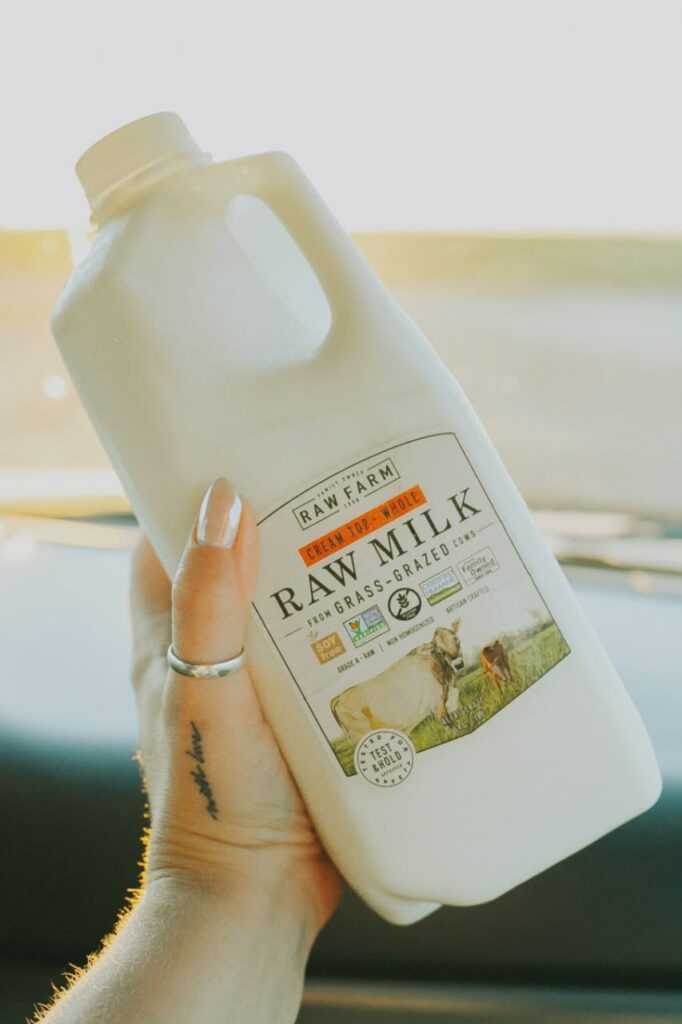The recent announcement by the U.S. Department of Agriculture (USDA) about testing the country’s milk supply for H5N1, the virus behind avian influenza, has raised significant concerns. Milk has been at the center of these discussions as bird flu cases have surged over the past year. The virus has reportedly spread between cows and even to farmworkers, with more than 700 dairy herds affected and at least 58 individuals, mostly farmworkers, falling ill.

Health officials are particularly focused on unpasteurized milk as they ramp up testing efforts. Testing will now include milk from large storage tanks at dairy processing facilities before it undergoes pasteurization. Farmers and dairy processors will be required to submit milk samples upon request, providing critical information to help track the spread of the virus. Previously, such testing was voluntary, but the new regulations aim to enhance monitoring and protect farmworkers who are at higher risk of exposure.
Matthew Moore, an assistant professor in the department of food science at the University of Massachusetts, Amherst, emphasized the importance of this testing in identifying infected farms and understanding how the virus moves between them. However, the new testing rules do not cover farms that directly sell raw milk to consumers, and regulations for such farms vary by state.
When cows contract bird flu, their milk contains high concentrations of the virus. Research shows that the virus can survive in refrigerated, unpasteurized milk for up to five weeks. These findings underline the potential role of milk in spreading the virus between cows and even to humans. Despite limited testing until now, scientists are working to get a clearer picture of how much of the raw milk supply is affected.
In a recent incident, Raw Farm, a major supplier of raw milk products in Fresno, California, recalled raw milk and cream after bird flu was detected in retail samples. The farm is now under quarantine and has halted the distribution of its raw milk products.
Although no human cases of bird flu have been linked to drinking raw milk, experts urge caution. According to Dr. Keith Poulsen, director of the Wisconsin Veterinary Diagnostic Laboratory, the high virus concentrations found in raw milk present a potential risk, even if the direct link to human illness is unconfirmed. Farmworkers, who are frequently exposed to raw milk, are more likely to contract the virus through handling or accidental contact, such as milk splashing into their eyes.
While infected workers have typically experienced mild symptoms, the potential effects on vulnerable populations like children, pregnant individuals, older adults, and those with weakened immune systems remain uncertain. Health officials also highlight the broader risks of consuming raw milk, which can harbor harmful bacteria like salmonella, listeria, and campylobacter, causing serious food-borne illnesses.
In addition to raw milk, products made from it, such as yogurt, kefir, and cheese, also pose potential risks. Experts say it is unclear whether the fermentation process significantly reduces the presence of H5N1 in these products. As a precaution, the California Department of Public Health has advised consumers to avoid all raw milk products from the recently recalled Raw Farm supply, including cheese and kefir.
For those wondering about the safety of pasteurized milk, health officials have reassured the public that it is completely safe. Studies confirm that pasteurization effectively inactivates the H5N1 virus, along with other harmful pathogens. Pasteurization involves heating milk to a specific temperature for a short duration, ensuring it is free from contaminants.
Darin Detwiler, a food safety expert and professor at Northeastern University’s College of Professional Studies, stressed the importance of pasteurization, calling it a critical measure not just for bird flu but for overall dairy safety.
Pets, too, can be at risk from bird flu if fed raw milk. Cats, dogs, and other animals have become severely ill and even died after consuming contaminated raw milk. Experts have raised concerns about people feeding their pets unpasteurized dairy products, often marketed as “pet food toppers.” Dr. Meghan Davis, a veterinarian and environmental epidemiologist at Johns Hopkins Bloomberg School of Public Health, warned against this practice, noting that pets consuming contaminated products could face severe health consequences.
While the focus remains on preventing the spread of bird flu through milk, health officials urge consumers to stick to pasteurized dairy products to protect themselves and their loved ones.
